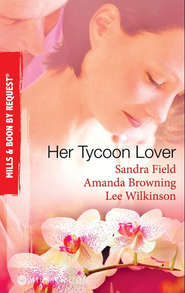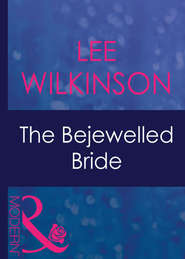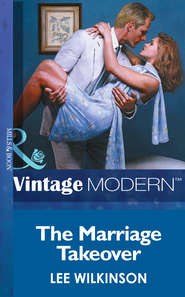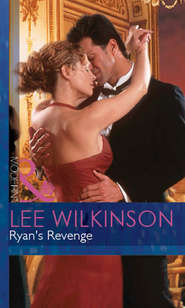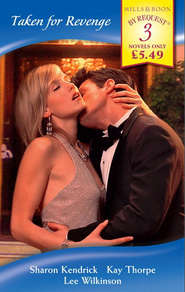По всем вопросам обращайтесь на: info@litportal.ru
(©) 2003-2025.
✖
The Boss's Forbidden Secretary
Автор
Год написания книги
2018
Настройки чтения
Размер шрифта
Высота строк
Поля
‘You’ll have a word with him before you go?’
‘I certainly will.’
She stooped to put fresh logs on the fire before going on, ‘The bunk beds are already made up, and I’ve left a pillow and some blankets on one of the couches in the lounge, so you can decide at your leisure which suits you best.
‘Now, if there’s nothing else either of you need I’m away to my bed. With a house full of guests I have to be up very early, so I’ll say goodnight to you both.’
‘Goodnight,’ they answered in unison.
At the door, she paused to say, ‘I almost forgot to tell you, there’ll be breakfast from six-thirty onwards. The breakfast room is just off the lounge… Oh, and when you’ve finished eating, perhaps you’ll put the trolley outside?’
When the door had closed behind her, Ross Dalgowan poured coffee for Cathy and himself, remarking thoughtfully, ‘If you only had a sandwich at lunchtime you must be hungry.’
‘I am, rather.’
‘Then tuck in.’
They enjoyed a leisurely supper without speaking, the only sounds the crackling of the logs and the wind soughing mournfully in the chimney.
As though comfortable with himself, his companion and his surroundings, Ross Dalgowan seemed quite content with the silence, and Cathy was pleased.
Neil, invariably uncomfortable with silence, had needed to fill every second with the sound of his own voice. Convinced he knew everything there was to know, he had talked whenever he had a listener.
But this man was different. He had a maturity Neil would never have and he was, she guessed, much quieter by nature.
She and Neil had first met when she had been a shy, naive nineteen and he was an experienced twenty, and she had been duly impressed by his strikingly handsome face and his apparent depth of knowledge.
After a whirlwind courtship—although he had been a penniless student—at his insistence they had got married, and he had moved in with her.
He had been about to start his last year at college, and because he had had no family to help she had found herself struggling to pay off his debts and support him, as well as Carl.
Even so, he had complained about her brother living with them, until she had told him firmly that it was, and always had been, Carl’s home.
‘Oh, very well,’ he’d said sulkily. ‘I suppose it’ll only be until he can get a job and find a place of his own.’
Relieved that he had accepted the situation, she had done her best to make him happy.
It wasn’t until they were married that she had discovered how empty and shallow he really was, and that his cleverness and his handsomeness—like the ripples on a pool—were all on the surface.
But, even after such a brief acquaintance, Cathy was already sure that Ross Dalgowan, who was sitting so quietly, was anything but shallow.
Watching him surreptitiously, she noticed that in the heat from the fire his hair had dried to the colour of ripe corn, and it struck her as strange that such a very masculine man should be so fair.
Neil had been blond, but fair-skinned, with pale brows and lashes and almost girlish features.
Whereas this man was tough-looking, with brows and lashes several shades darker than his hair and the kind of skin that would tan easily.
Though Neil had proved to be greedy and selfish and vain—a narcissist to the core—he’d been a golden boy that the opposite sex had fawned over.
A woman’s darling.
Ross Dalgowan would be a woman’s darling, she had little doubt, but he would also be a man’s man, where Neil had had few, if any, male friends.
When she had first met Neil, he’d appeared to be charming and easygoing, willing to live and let live. But in reality—like some weak people—he had been spoilt and peevish, a bully at heart.
Her companion, she was oddly certain, would be neither spoilt nor peevish, and while he might be masterful, she couldn’t see him being a bully.
Watching him, she noticed that he ate with a healthy appetite, but neatly and noiselessly.
Unlike Neil, who, in spite of his somewhat effeminate good looks and his general air of delicacy, had tended to bolt his food. Rather like a greedy schoolboy who hadn’t yet learned either manners or self-control.
She had discovered, to her cost, that the same went for his sexual appetite.
They had been married only a matter of months when, after drinking too much wine, he’d tried to force himself on her.
Failing, he had lashed out at her, calling her a lot of things, amongst which ‘a frigid bitch’ was the kindest by far.
Sighing, she pushed thoughts of the unhappy past aside and, glancing up, found herself looking into eyes the grey of woodsmoke—fascinating eyes that tilted up a little at the outer edge.
Her head whirling, and a strange tingle running along her nerve ends, she tore her gaze away.
Sensitive to her mood, Ross asked, ‘Problems?’
‘No, not really.’
Though he obviously didn’t believe her, he let the matter drop, and they continued the meal in companionable silence.
‘More coffee?’ he queried when they had both finished eating.
‘No, thank you.’
‘Then I’ll get rid of this.’ He rose to his feet and put the trolley outside.
Returning to his seat, he suggested, ‘Suppose we have a “wee dram” before we turn in, as Mrs Low’s husband advised?’
Though normally she never drank spirits, wanting to keep him with her a little longer, she agreed, ‘Yes, why not?’
He opened the bottle and, having poured a finger of whisky into both glasses, handed her one.
Raising his own glass, he toasted, ‘Here’s to the future, and our better acquaintance.’
His words, and the look in his eyes, brought a surge of warmth and excitement, and she found herself yearning for something this man seemed to offer. Something poignant. Something magic. Something that would last a lifetime. True love, perhaps…?
Telling herself not to be foolish, she tore her gaze away with an effort and took an incautious sip of her drink. The strong spirit made her cough.
His lips twitched, but, hiding his amusement—if indeed it was amusement—he said, ‘Just to prove that I’ve lived in England for a long time, I’ll act like a Sassenach and ask if you’d prefer some water with it?’
‘Yes, I would,’ she answered gratefully, and started to rise to fetch it.






